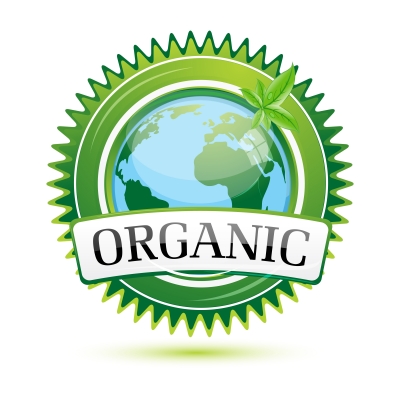One of the biggest debates in the field of nutrition and health is the organic versus non-organic food debate. This is a LOADED debate that doesn’t have a definitive answer (and may never). Imagine what it would take to get a definitive answer to a question like this: The study would be of massive cost and nearly impossible logistics. Currently, our best answers come from “meta-analysis” , or the combination of many studies into a review. So what do these meta-analyses say?
What is Organic Food?
According to the USDA, any food labeled organic must be produced by farmers who emphasize the use of renewable resources and conservation of soil and water to enhance environmental quality for future generations. Organic meat, poultry, eggs, and dairy must come from animals that are given no antibiotics or growth hormones. Organic food must be produced without using most conventional pesticides/fertilizers made with synthetic ingredients or sewage sludge. Sounds great, right? The problem is in the fine print. For a product to be labeled “organic”, it must contain 95% organic ingredients. But a product that is labeled as “made with organic ingredients” only needs to be 70% organic.
Nutritional Quality Higher?
Most studies show that with regards to nutrient composition organic and non-organic food are VERY similar and any differences are practically insignificant.. For anyone eating a well-rounded diet, these differences will have no impact on overall diet quality.
Review of 137 studies from the London School of Hygiene and Tropical Medicine published in the American Journal of Clinical Nutrition.
- There is no difference in nutrient quality between organically and conventionally grown foods.
Review of 237 studies comparing organic to conventional food from Stanford University.
- The published literature lacks strong evidence that organic foods are significantly more nutritious than conventional foods.
Pesticide Residue
Some studies do report higher levels of pesticide residue on conventionally grown foods. However, most studies only look at synthetic pesticides and not the natural ones approved for organic farming. Some natural pesticides are more toxic than synthetic pesticides, and synthetic pesticides can be used in smaller (safer) amounts. In addition, research showing that there are higher levels of pesticides in conventional crops compared to organic crops fails to put these numbers into perspective.
For example, apples are typically considered one of the most pesticide-laden fruits. In a study from University California Davis (1), researchers tested apples and found that they contained a pesticide called thiabendazole. However, the amount of thiabendazole in each apple was 787 times less than the EPA’s recommended exposure limit. Additionally, a simple hand wash and light rub will remove most of the residue that remains on the product. To further debunk the pesticide fear, we can’t forget that fruit and plants contain natural toxins (2). It is estimated that we ingest 16,000 times the amount of natural toxins than synthetic toxins every day (no, natural toxins are not better for you than synthetic toxins). The bottom line is toxins are everywhere; it’s the dose that makes toxins harmful ,not the mere fact that they are consumed.
Organic and the Earth
There is not much debate on the positive attributes of organic food/farming in terms of the impact on our planet. Organic farming tends to be better for water and soil sustainability and overall environmental impact. The same can be said for eating local produce whenever feasible. In the end, if we do not have a healthy planet nothing really matters. For this reason, if possible and when affordable, eating organic/local is not a bad idea.
Take Home
“Organic” and “nutritious” are not synonymous. Organic potato chips are definitely not better for you than conventionally grown broccoli, and organic broccoli probably isn’t better for you either. For optimal health, focus on eating fruits, vegetables, whole grains and lean meat, regardless of how it was grown. When possible, eat locally grown and sustainably grown foods — the impact on your health may be minimal but the impact on the planet is not.
- http://www.pnas.org/content/87/19/7777.full.pdf
- http://www.ncbi.nlm.nih.gov/pmc/articles/PMC3135239/
About the Author:
-

Michael Stack is the founder & CEO of Applied Fitness Solutions and Frontline Fitness Pros. He is a faculty lecturer for the University of Michigan’s School of Kinesiology. He is also the creator and the host of the Wellness Paradox Podcast, produced in conjunction with University of Michigan.
Michael is an exercise physiologist by training and a health entrepreneur, health educator, and fitness industry advocate by trade. He is dedicated to enhancing the standard of practice of, and advocating for, fitness and wellness professionals to ensure they become an essential constituent in the healthcare delivery system.
With a career spanning over three decades in fitness, health, and wellness Michael has a deep knowledge of exercise physiology, health/wellness coaching, lifestyle interventions to mitigate chronic disease and leadership. He is credentialed through the American College of Sports Medicine (ACSM) as an Exercise Physiologist (ACSM-EP), Exercise is Medicine practitioner (ASCM-EIM), and a Physical Activity in Public Health Specialist (ACSM-PAPHS). Michael is a National Strength & Conditioning Association (NSCA) Certified Strength & Conditioning Specialist (CSCS), and a CDC Diabetes Prevention Program (DPP) Lifestyle Coach.
Michael received his undergraduate degree from the University of Michigan’s School of Kinesiology in 2004 and is currently a Master’s of Public Health (MPH) candidate at University of Michigan, with a specific concentration in health behavior and health education.
Michael is a board of directors’ member for the Physical Activity Alliance and Michigan Fitness Clubs Association. He sits on the University of Michigan’s School of Kinesiology Alumni Board of Governors. Michael is an expert curriculum reviewer for the American College of Lifestyle Medicine. Finally, he is a member of the executive leadership team for American Heart Association’s Heart Walk.
Michael lectures nationally for several health/fitness certification and continuing educations, including; IHRSA, the Medical Fitness Association, the National Strength & Conditioning Association, and SCW Fitness.

